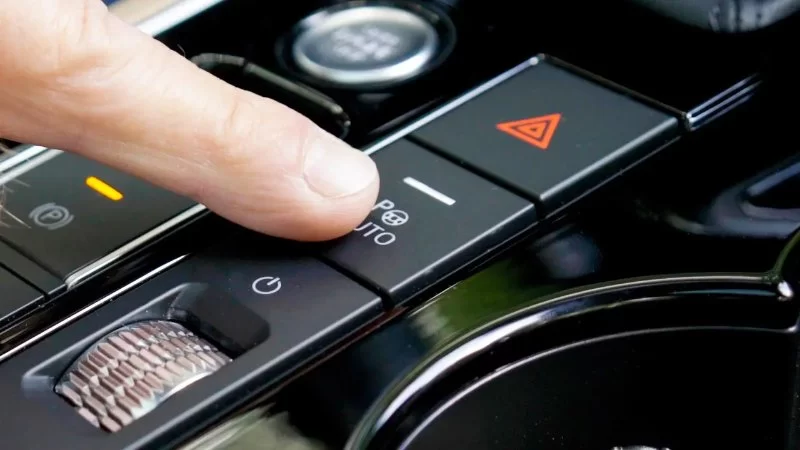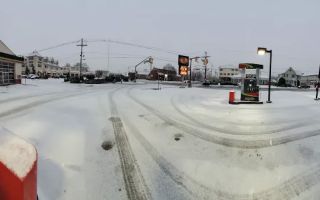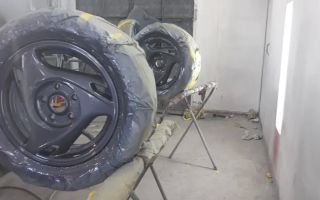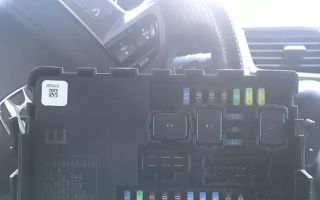- understanding-how-parking-assist-systems-work
- common-reasons-your-parking-assist-might-fail
- step-by-step-troubleshooting-guide
- real-scenarios-when-parking-aid-failure-mattered
- when-to-seek-professional-help
- get-back-on-the-road-with-rescue-and-towing
1. Understanding How Parking Assist Systems Work
1.1 The Technology Behind the Convenience
Parking assist systems use ultrasonic sensors, radar, and sometimes rearview or 360-degree cameras to detect objects and calculate distances. These tools then trigger visual or audio alerts to guide drivers into tight spots safely. In more advanced cars, the system can even steer automatically while the driver controls the brake and accelerator.

Pick Your Part - Help Yourself
1232 Blinn Ave, Wilmington, CA 90744, USA
1.2 Why It’s a Game-Changer for Urban Driving
For city dwellers or drivers who regularly deal with parallel parking, the assist feature isn’t just convenient—it’s a stress reliever. But when the system suddenly stops working or becomes unresponsive, it can lead to confusion and even accidents, especially in high-traffic areas or tight parking structures.

Pick Your Part - Greer
13054 E Wade Hampton Blvd, Greer, SC 29651, USA
2. Common Reasons Your Parking Assist Might Fail
2.1 Dirty or Blocked Sensors
A buildup of snow, dirt, or road salt can block the ultrasonic sensors, causing the system to think an object is present—or worse, not detect anything at all. This is particularly common after driving through slush or mud.
2.2 Electrical or Software Malfunctions
Software glitches or issues with the vehicle’s onboard computer can cause the parking assist to freeze or turn off. Some drivers have reported that a dead battery or faulty alternator caused unrelated systems, including parking sensors, to fail temporarily.
2.3 Faulty Wiring or Sensor Damage
In more serious cases, wiring under the bumper may become disconnected or damaged due to minor accidents or even DIY installations of aftermarket accessories. This requires deeper diagnostics or professional repair.
3. Step-by-Step Troubleshooting Guide
3.1 Start with the Obvious: Clean the Sensors
Use a microfiber cloth and water to gently wipe down all visible parking sensors. Don’t use high-pressure hoses directly on them as this could cause damage. After cleaning, restart the engine and test the system again.
3.2 Check for Dashboard Alerts
If your car displays a “parking aid unavailable” or “check parking sensors” message, pay close attention to when the warning appears. Is it consistent? Does it occur after rain or cold starts? These clues help identify if it’s a software or hardware issue.
3.3 Restart the Vehicle or Disconnect the Battery
Sometimes, simply restarting the car or disconnecting the battery for a few minutes can reset the system. Be sure to consult your vehicle manual before disconnecting the battery—some cars require code resets for the radio or security systems.
3.4 Test in Different Conditions
Try using the parking assist in various environments—sunlight, shade, wet pavement—to see if conditions affect performance. One user on a Tucson owners forum shared that their assist only failed during high humidity days, hinting at a moisture-sensitive connector.
4. Real Scenarios When Parking Aid Failure Mattered
4.1 A Narrow Escape in a Tight Garage
In Los Angeles, a driver misjudged the distance to a parking pole after assuming the assist would warn them. The system had been accidentally deactivated during a routine service visit. The bumper took a hit, leading to a $1,200 repair bill—one that could’ve been avoided with a quick feature check.
4.2 High-Tech Doesn’t Always Mean High-Reliability
In 2024, a viral Reddit post showed a dashcam of a luxury SUV gliding into a pillar while the owner was relying on an auto-park feature. The culprit? A damaged rear sensor that had shorted out without a dashboard alert. Comments exploded with similar stories—proving that even the best tech still needs user awareness.
5. When to Seek Professional Help
5.1 When DIY Fixes Don’t Work
If cleaning sensors and restarting your vehicle doesn’t restore functionality, it's time to visit a professional technician. Modern cars often require a diagnostic scan to access error codes tied to parking assist systems. Ignoring small malfunctions may result in costlier repairs down the line.
5.2 Persistent Sensor Errors or Inconsistent Feedback
If you hear irregular beeping, receive false positives, or the system cuts off mid-parking, the issue could lie deeper within the system’s wiring or sensor module. At that point, only certified diagnostics tools can help pinpoint the failure.
6. Get Back on the Road with Rescue & Towing
6.1 Expert Help When It Matters Most
If your car’s parking assist is unresponsive and you're not comfortable diagnosing it yourself, reach out to Rescue & Towing. Our team of experienced professionals can provide immediate roadside support or transport your vehicle safely to a certified service center. Don’t let a small issue turn into a bigger problem—get the support you need to keep your vehicle smart and safe.
6.2 Preventive Checks That Save You Time
At Rescue & Towing, we also offer preventive diagnostics for driver-assistance systems. Whether you're prepping for a long road trip or noticing subtle changes in performance, we can help ensure your vehicle’s safety features stay responsive—right when you need them.





























